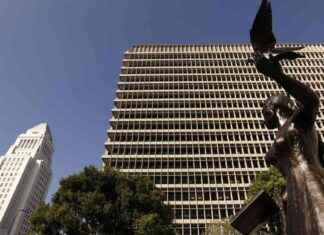‘Gods and kings’. A biography cross on Alexander McQueen and John Galliano explores how the two geniuses of the british touched the sky, and crashed in tracks estremecedoramente parallel
The evening of 24 February 2011, the head of exhibitions at the Arab World Institute in Paris, Géraldine Bloch, was taking a coffee with her boyfriend at the paris sidewalk café La Perle when a man in evident state of drunkenness, sitting next to her began to accosted the couple. The insults were growing in intensity, until the men shouted: “Dirty face jewish, you’d have to be dead!”, grabbing it by the hair.
That man was John Galliano, creative director of famed fashion house Christian Dior. Worst of all is that there was a video (that did not take long to become viral) which contained the embarrassing exabruptos anti-semitic. The scandal was huge, he jumped to the front pages of newspapers and tv news half a planet, and in less than a week, the designer born in Gibraltar was fired from his own brand and Dior, no matter that only a few days after I had place the traditional parade of the signature on the Fashion Week in the Rodin Museum.
The collapse of Galliano took place barely a year after Alexander McQueen was found dead in his London flat. After years of drugs and excesses, the british hanged himself in his dressing room the same week that her mother passed away, Joyce, unable to cope with his loss. In Gods and kings (Superfluous) journalist Dana Thomas delves into the lives of these two geniuses to try to understand what made them reach the Heights of fashion and lose it as dramatically. And the conclusion of the writer, tanned in The New York Times, Vogue and The New Yorker, is that beyond the wild side of both creators and the flaws that accelerated their collapse, Galliano and McQueen “were sacrificed in the name of capitalism”.
Although it took ten years, their paths have in common not only a final deranged, but also a childhood marked by parents who are authoritarian, families very humble (the father of Galliano was a plumber, the of McQueen, taxi driver) and a few mothers that were worshiped and fed her passion for fashion (Galliano, by the way, hails from The Line of the Conception and guilty of his fascination for the flamenco). The two studied at Central Saint Martins, frequented the night, and both made excellent collections of graduation.
The two, one might add, were lured by Bernard Arnault, a key piece in their meteoric careers. Arnault, a shark of finance, who made his first steps in the real estate industry selling apartments before becoming the richest man in France, decided to invest in fashion brands French goings at least. In 1985 he took control of Dior. The strategy, many times told, was to sign a designer new that I get younger the mark, someone young, with charisma, talent and something rough-and-tumble, generating controversies within and outside of the gateway and would have fostered a boom in the media. The idea was not so much to sell clothes as to awaken the desire around the mark and fill this drive with shoes, bags, perfumes, lipstick… A formula that Wertheimer, owners of Chanel, had given them very good results in the joining of Karl Lagerfeld in 1982. Arnault put Galliano at Christian Dior and McQueen at Givenchy. Did the same with Marc Jacobs at Louis Vuitton and Tom Ford at Gucci. They all had problems of anxiety and depression, unable to cope with the overload of work.
When Galliano began, recalls Thomas, designed two collections a year. At the time of his termination, in 2011, oversaw the impressive amount of 32 collections a year. To this we must add the pressure to sell and be commercial (Arnault joined to executives coming from companies of appliances and frozen) and a train of life with privileges of the new rich (private driver 24 hours, a trip on a jet, the expenses and the salaries of scandal), a cocktail capable of destabilizing any. “Galliano and McQueen endured longer than most of their colleagues simply because they were two of the selfish more strong and determined of the many that there are in the world of fashion,” says Thomas. “Were”, he says, “sacrificed in the name of capitalism”.
According to the criteria of
Learn more






